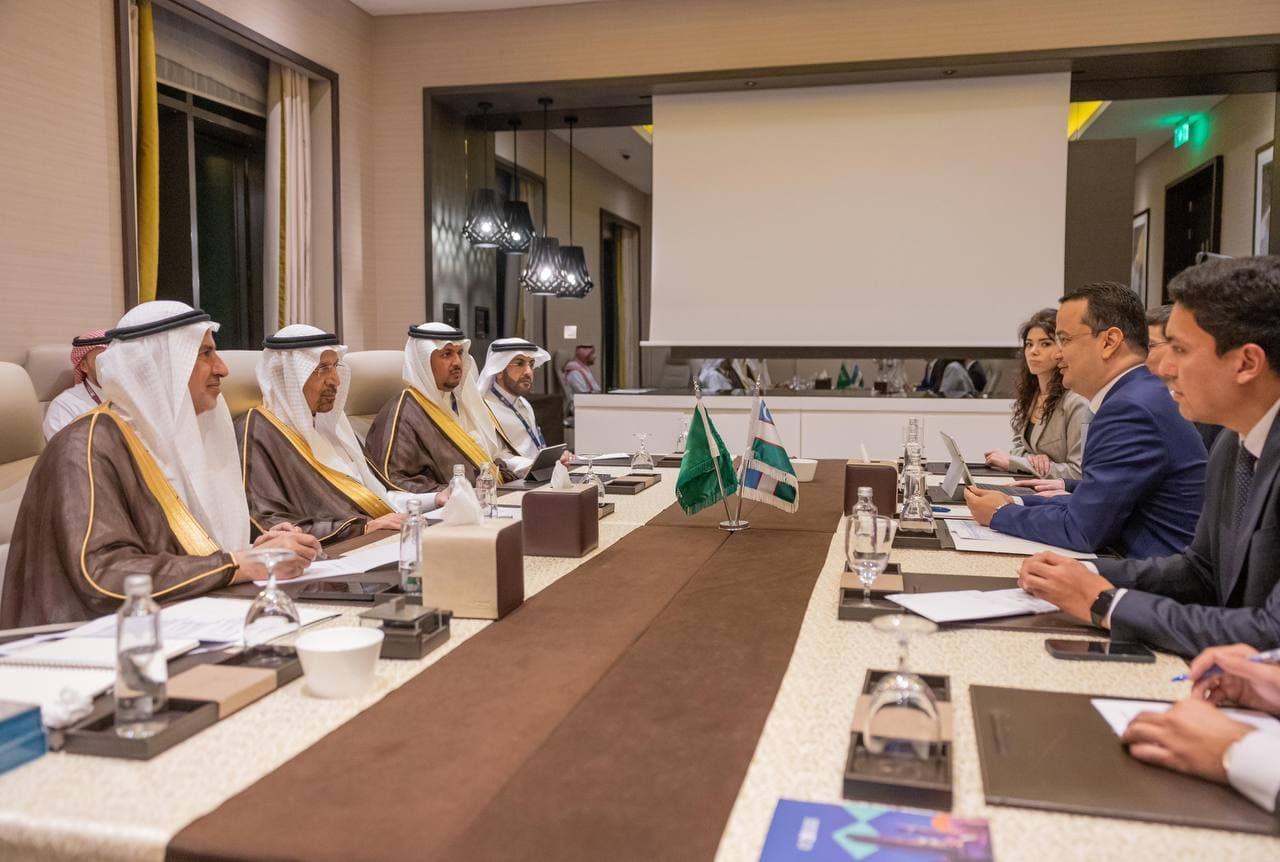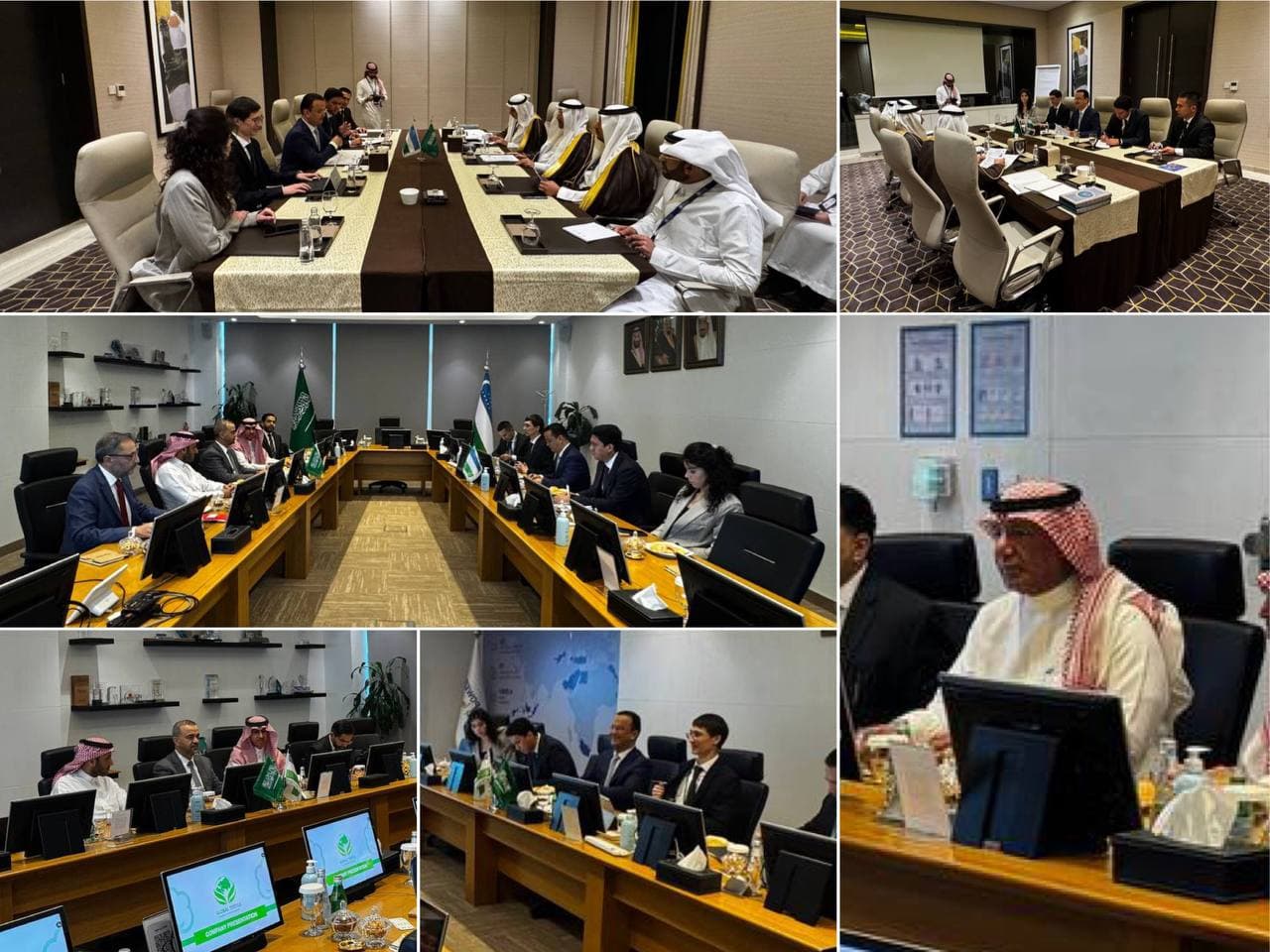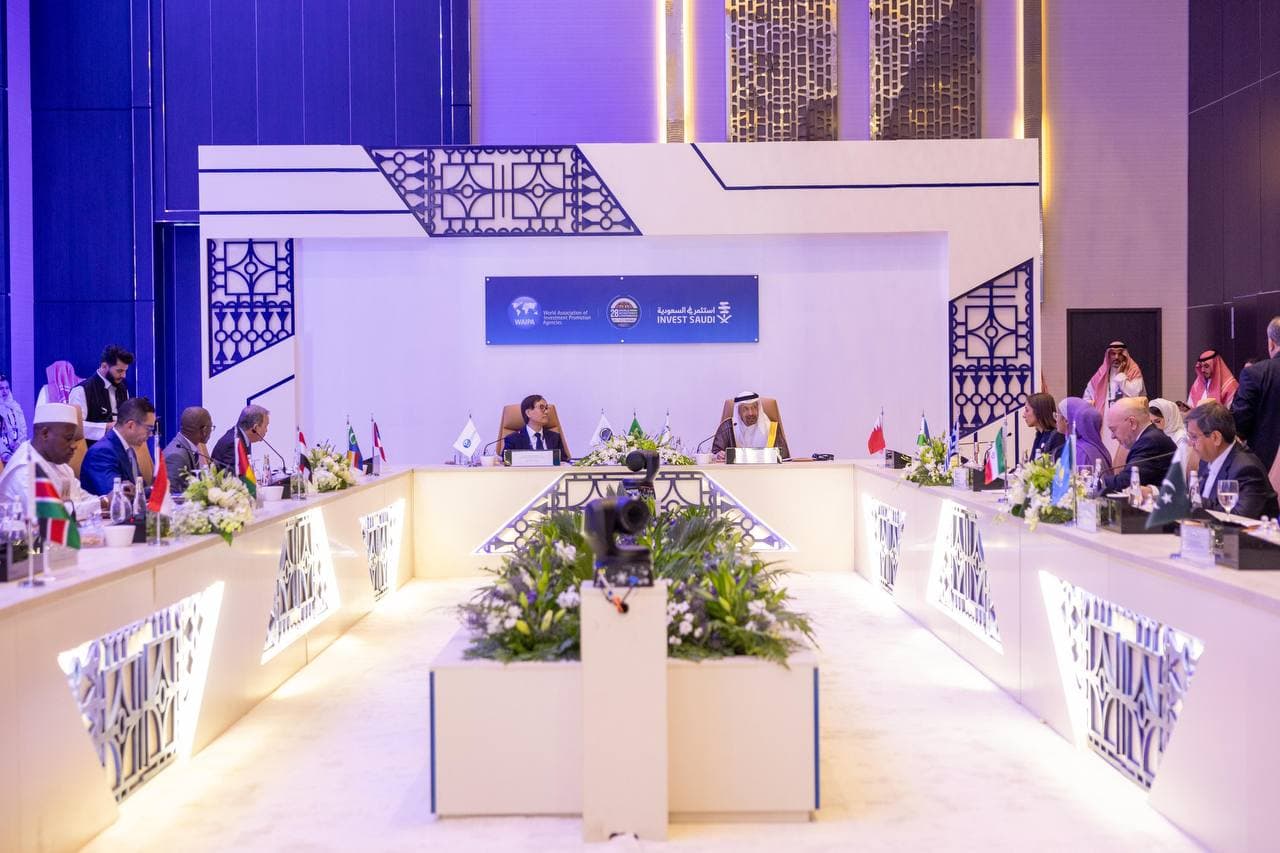The scale of Uzbek-Saudi trade and economic cooperation is growing.
2024-11-27 09:00:00 / News

On November 24–25 of this year, Laziz Kudratov, Minister of Investment, Industry, and Trade of the Republic of Uzbekistan, visited the Kingdom of Saudi Arabia, where he participated in the 28th World Investment Conference and held a series of meetings and negotiations with Khalid Al-Falih, Minister of Investment of KSA, as well as with leaders of major companies from the country.
The 28th World Investment Conference brought together 3,000 participants from over 100 countries. In addition to panel sessions and other events, the conference program featured a roundtable at the investment minister level with representatives from 21 countries on the topic "Paradigm Shift: Synergy of Industrial Policy and Investment Attraction Strategies". The discussion facilitated identification of key factors likely to shape the international investment landscape in the coming years: promoting investments in the green economy, technological advancements, rethinking global supply chains, infrastructure development, and ensuring demographic growth.
On the sidelines of the event, Laziz Kudratov met with Minister Khalid Al-Falih to discuss pressing issues related to Uzbek-Saudi bilateral cooperation. Both parties reached a consensus on various matters, outlined specific measures for further collaboration, and agreed on dates for the next session of the Intergovernmental Joint Commission and a business forum to be held in Samarkand in the first quarter of 2025.
During discussions with Saudi business leaders, the parties thoroughly reviewed the progress of ongoing joint projects, considered ways to increase the supply of high-demand products, and explored new investment initiatives. These evaluations accounted for the capabilities of companies, availability of financial tools, and the potential of Uzbekistan’s priority economic sectors.
Overall, the discussions highlighted a high level of trust from Saudi business circles in Uzbekistan’s investment environment and their willingness to participate in long-term projects, including those based on public-private partnerships and non-sovereign financing principles.


